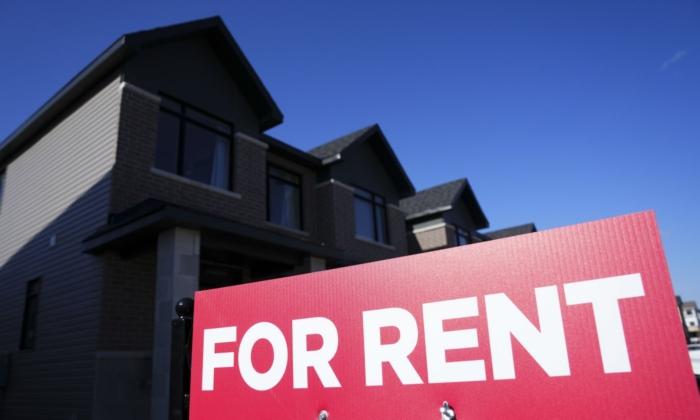Average asking rents in Canada saw a record-high as 2023 came to a close, reaching a historic $2,178, according to the latest report from Rentals.ca. This marked an 8.6 percent increase from $2,005 a year ago in December 2022.
2024 Outlook
The report said Canada’s rental market will remain undersupplied in 2024, though a shift toward greater balance is expected. Rent growth is projected to converge toward its five-year average of approximately 5 percent.Rental demands in 2024 are expected to remain strong, the report said. Factors contributing to this demand include a slowing economy, a reduced number of non-permanent residents, and an increase in homebuying activity as interest rates begin to decline.
According to the Rentals.ca report, more apartment completions and increased tenant turnover are expected to bring more supply into the market in 2024, potentially moderating rent growth.
Fastest Growth in Apartment Rents
While traditional purpose-built rental apartments had the lowest average rents of $2,076 in the country, they exhibited the fastest growth at 12.8 percent in 2023, the report stated. In comparison, condominium rentals and home rentals saw relatively slower annual growth of 6.9 percent and 5.9 percent, with average rents of $2,340 and $2,354, respectively.Breaking down unit types, one-bedroom apartments experienced the fastest growth in 2023 at 12.7 percent, reaching an average rent of $1,932. Studio rents followed closely with an 11.9 percent increase, averaging $1,552. Two-bedroom and three-bedroom apartments saw annual increases of 9.8 percent and 9.9 percent, reaching average rents of $2,301 and $2,579, respectively.
The report highlighted regional differences in apartment rents. Alberta led with a 16 percent rent increase for apartments in 2023. B.C. maintained its status as the priciest province for apartment rents, reporting an average asking rent of $2,500 in December, despite a 1.4 percent year-over-year decrease. In Ontario, apartment rents, closely trailing at $2,446, experienced a 3.7 percent annual increase that month, considerably slower than the 15.5 percent surge in the province in 2022. Quebec was the only province that experienced faster apartment rent growth in 2023 (10 percent) compared to 2022 (6.9 percent), raising rents to an average of $1,953 in December 2023.
Looking at the average rent in major cities, the report showed that Calgary had the highest annual rent growth at 14 percent, followed by Edmonton at 13.5 percent. Montreal came in third with an 11.3 percent increase in December 2023, bringing its average apartment rent to $2,019.
Vancouver and Toronto, Canada’s most expensive major markets, experienced a slowdown in annual rent increases in 2023. Vancouver’s asking rents declined by 0.7 percent, averaging $3,059, while Toronto saw a modest 2.1 percent increase to an average of $2,832.
In the small- and mid-sized markets, B.C. dominated the list with the highest rents, with North Vancouver leading at $3,361, followed by Burnaby, Richmond, and Coquitlam. Ontario’s Richmond Hill rounded out the top five with an average rent of $2,782, according to the report.
The Rentals.ca report is built on data from monthly listings obtained through the Rentals.ca Network of Internet Listings Services. It noted that this data varies from the numbers collected and published by the Canada Mortgage Housing Corporation.







